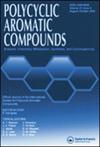白藜芦醇对非小细胞肺癌的保护作用:体外和计算机研究
IF 2.6
3区 化学
Q2 CHEMISTRY, ORGANIC
引用次数: 0
摘要
白藜芦醇是一种非黄酮类多酚分子,已被证明在治疗包括肺癌在内的几种癌症方面具有化疗和化学预防作用。80%的肺癌是非小细胞肺癌。本研究旨在观察白藜芦醇对非小细胞肺癌细胞(A549)的作用,并分别通过体外和计算机研究观察其作为Akt蛋白抑制剂的结合。以阿霉素和地塞米松为标准药物进行细胞活力测定,白藜芦醇(p = 0.01, p = 0.0051)能显著抑制肺癌细胞的生长,IC50值为37.32±0.8 μM。研究发现,白藜芦醇的有效性是地塞米松的六倍,这表明它比这种标准药物具有更高的抗增殖潜力。在伤口闭合实验中,白藜芦醇处理组在较高的500 μM浓度下的迁移率较低,并且细胞形状发生变化,显示了A549细胞生长的浓度依赖性行为。在目前的研究中,通过细胞活力测定和伤口闭合试验证明白藜芦醇对A549肺癌细胞具有抗增殖活性,并以浓度和时间依赖性方式抑制癌细胞增殖。我们还观察到白藜芦醇与Akt蛋白结合,并通过与Akt蛋白的atp结合区相互作用抑制Akt的活性。然而,白藜芦醇抗癌功效背后的分子机制尚不清楚。最后,本研究可为今后对肿瘤抑制因子白藜芦醇的研究奠定基础。本文章由计算机程序翻译,如有差异,请以英文原文为准。
Protective Effect of Resveratrol Against Non-Small Cell Lung Cancer: In-Vitro and In-Silico Studies
Resveratrol, a non-flavone polyphenol molecule, has been shown to be both chemotherapeutic and chemopreventive in the treatment of several forms of cancer, including lung cancer. 80% of cancers of the lungs are non-small cell lung cancers. The study was carried out to see the effects of Resveratrol in non-small cell lung cancer cells (A549) and to observe its binding as an inhibitor to Akt protein using in-vitro and in-silico studies, respectively. As per the results of Cell viability assay, which used Doxorubicin and Dexamethasone as standard drugs, Resveratrol (p = 0.01, p = 0.0051) could significantly stop lung cancer cells from growing, with IC50 values of 37.32 ± 0.8 μM. It was discovered that Resveratrol was about six times more effective than Dexamethasone, suggesting that it has a significantly higher anti-proliferative potential than this standard drug. During the Wound-closure assay, the rate of migration in the Resveratrol treatment group showed a lower migration rate at a higher concentration of 500 μM together with a change in the shape of the cell, demonstrating the concentration-dependent behavior of A549 cell growth. In the current study, it was demonstrated using Cell viability assay and Wound closure assay that Resveratrol exhibits anti-proliferative activity on A549 lung cancer cells and inhibits cancer cell proliferation in a concentration and time-dependent manner. It was also observed that Resveratrol binds to Akt protein and it inhibits the activity of Akt by interacting with the ATP-binding region of Akt protein. However, the molecular mechanism behind resveratrol’s anti-cancer benefits remains unknown. Finally, the current study may lay the groundwork for future research into the tumor suppressor resveratrol.
求助全文
通过发布文献求助,成功后即可免费获取论文全文。
去求助
来源期刊

Polycyclic Aromatic Compounds
化学-有机化学
CiteScore
3.70
自引率
20.80%
发文量
412
审稿时长
3 months
期刊介绍:
The purpose of Polycyclic Aromatic Compounds is to provide an international and interdisciplinary forum for all aspects of research related to polycyclic aromatic compounds (PAC). Topics range from fundamental research in chemistry (including synthetic and theoretical chemistry) and physics (including astrophysics), as well as thermodynamics, spectroscopy, analytical methods, and biology to applied studies in environmental science, biochemistry, toxicology, and industry. Polycyclic Aromatic Compounds has an outstanding Editorial Board and offers a rapid and efficient peer review process, as well as a flexible open access policy.
 求助内容:
求助内容: 应助结果提醒方式:
应助结果提醒方式:


